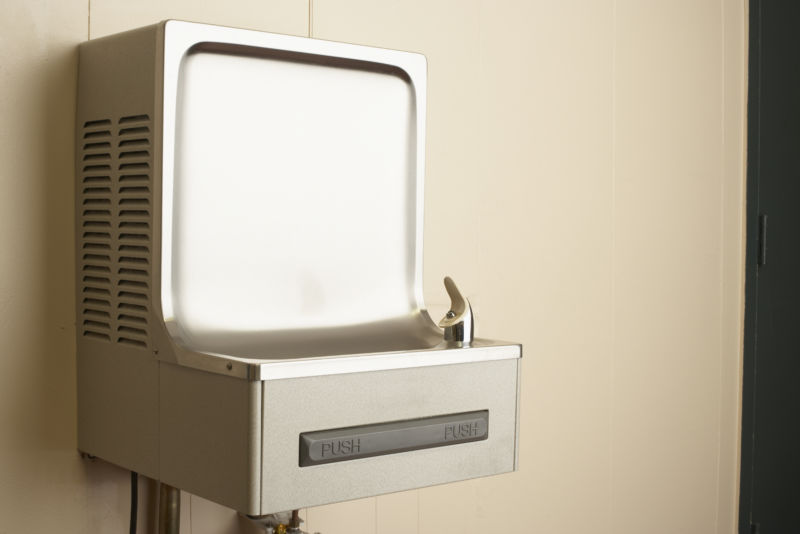
Students returning to school in Detroit next week will find their water fountains entirely shut off over concerns of elevated lead and copper levels—something that federal lawmakers say is part of a “disturbing and unacceptable” nationwide issue.
The decision to shut off the drinking water in Detroit was based on a first round of results from testing that the school district carried out in its 106 schools earlier this year. The results from just 24 schools so far surfaced 16 that had water sources tainted with excessive levels of lead, copper, or both. For instance, tests at the district’s Academy of the Americas Elementary school found a kitchen and drinking faucet in a basement cafeteria that had lead levels of 182 micrograms per liter (ug/L) and 154 ug/L, respectively. Those are more than ten times the Environmental Protection Agency’s recommended limit of 15 ug/L. The full testing results can be found here.
Nikolai Vitti, superintendent of the Detroit Public Schools Community District (DPSCD), announced the shutoff Wednesday. In a statement to the Detroit Free Press, Vitti explained:
Although we have no evidence that there are elevated levels of copper or lead in our other schools where we are awaiting test results, out of an abundance of caution and concern for the safety of our students and employees, I am turning off all drinking water in our schools until a deeper and broader analysis can be conducted to determine the long-term solutions for all schools.
In a joint statement, the Great Lakes Water Authority (GLWA) and the Detroit Water and Sewerage Department (DWSD) were quick to point out that the contamination is not due to a problem with the region’s water system. Rather, the pair blamed aging plumbing within the schools for the contamination.
“The water at GLWA’s treatment plants is tested hourly and DWSD has no lead service lines connected to any DPSCD building. The drinking water is of unquestionable quality,” the statement read.
In an interview with The New York Times, Vitti acknowledged the sad state of the school district’s infrastructure, pointing to an assessment last year that determined it would cost about half a billion dollars to bring school buildings up to standard. Vitti, who took on the role of superintendent in May of 2017, placed the blame at state-appointed emergency managers who controlled school facilities from 2009 to 2016. Vitti said they failed to make investments in the school’s upkeep, which sent the message to students, parents, and employees “that we really don’t care about public education in Detroit.”Detroit is far from the only school district potentially sending that message. In July, the Government Accountability Office released a report finding that a measly 43 percent of school districts nationwide tested for lead in their drinking water in 2016 and 2017. The report noted just seven states and the District of Columbia require such testing. Those states are: California, Illinois, Maryland, Minnesota, New Jersey, New York, and Virginia.
Of those that do testing, 37 percent found elevated lead levels in 2016 and 2017, the GAO found. And the problem hasn't gone away. This month, state-mandated testing in Maryland turned up high levels of lead from school faucets in several counties. In those cases, officials shut off individual water sources, rather than all of the schools' drinking water.
As the GAO report noted, lead exposure in children leading to elevated levels in the blood is linked to anemia, kidney and brain damage, learning disabilities, and decreased growth. While the most common source of lead exposure for young children is still paint chips and dust in aging buildings and homes, water sources are a concern as well.
Upon the release of the GAO’s report, a group of Congressional democrats put out a fiery response calling for federal action. “The findings in this report are disturbing and unacceptable,” they said in a joint statement. “No child should be put at risk for toxic lead exposure simply by drinking water at school.”
reader comments
146